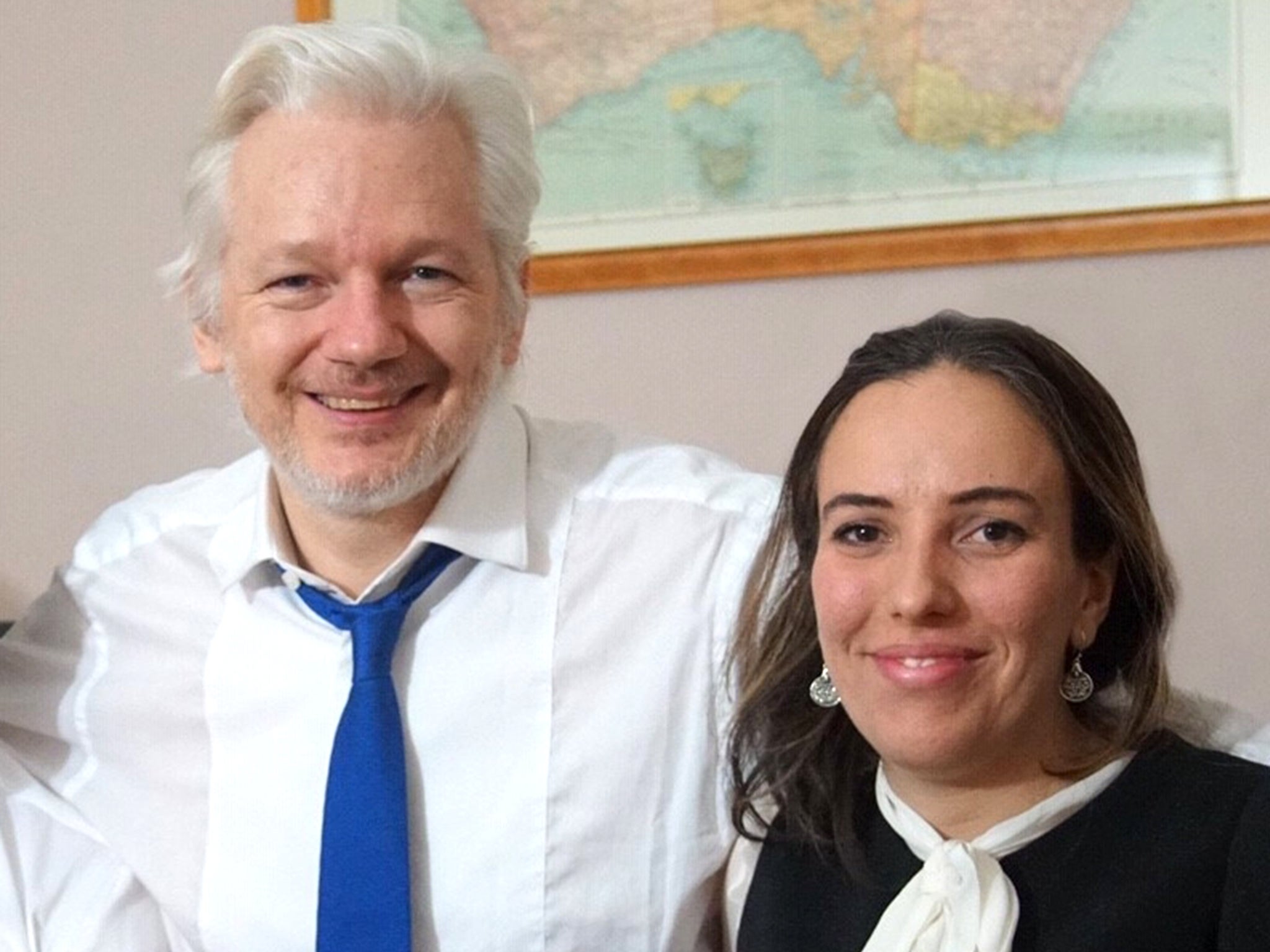Julian Assange: Priti Patel’s extradition order shows government’s ‘totalitarian bent’, says wife
Decision to send Wikileaks founder to US part of push to ‘weaken’ civil liberties, says Stella Moris
Your support helps us to tell the story
From reproductive rights to climate change to Big Tech, The Independent is on the ground when the story is developing. Whether it's investigating the financials of Elon Musk's pro-Trump PAC or producing our latest documentary, 'The A Word', which shines a light on the American women fighting for reproductive rights, we know how important it is to parse out the facts from the messaging.
At such a critical moment in US history, we need reporters on the ground. Your donation allows us to keep sending journalists to speak to both sides of the story.
The Independent is trusted by Americans across the entire political spectrum. And unlike many other quality news outlets, we choose not to lock Americans out of our reporting and analysis with paywalls. We believe quality journalism should be available to everyone, paid for by those who can afford it.
Your support makes all the difference.Priti Patel’s decision to send Julian Assange to the US to face espionage charges is part of the government’s “increasingly totalitarian bent”, the wife of the Wikileaks founder has said.
Writing for The Independent, Stella Moris condemned the home secretary for “flouting” calls from the Europe’s leading human rights organisation, doctors and journalists to stop his extradition to the US.
Mr Assange’s wife, a lawyer and campaigner, said last week’s decision by Ms Patel struck a blow for civil liberties at a time the government was also trying to “weaken” human rights legislation.
“The home secretary flouted calls from representatives of the Council of Europe, the OSCE [Organisation for Security and Co-operation in Europe], almost two thousand journalists and three hundred doctors for the extradition to be halted,” she wrote.
Ms Moris added: “Priti Patel’s decision comes amidst sweeping government reforms of an increasingly totalitarian bent – the plans to weaken the influence of the European Court of Human Rights and the decision to extradite Julian are the coup de grace.”
Assange is currently in Belmarsh prison awaiting extradition to the US. His team have said they will appeal the home secretary’s decision and take their case to the European Court of Human Rights (ECHR) if necessary.
The government is introducing a new bill to direct British courts the power to ignore rulings from the ECHR, which last week blocked ministers’ plans to send migrants to Rwanda.
Ms Moris also argued that Ms Patel’s proposed reforms to the UK’s Official Secrets Act “largely track the Trump-era indictment against Julian” – pointing to the plan to allow publishers and sources to be charged as criminal co-conspirators.
Mr Assange was arrested in April 2019 having spent five years in the Ecuadorian embassy in London after he sought political asylum.
He fought extradition to Sweden, where police had said they wanted to investigate him over two accusations of sexual assault. Mr Assange has denied those claims, and said he believed he would be taken to the US.
The US has been seeking to put Mr Assange on trial since his website in 2010 published a series of leaks which pointed to wrongdoing by American forces in Iraq and Afghanistan.

Ms Moris has told The Independent that her husband is “certain” to die in US custody if he is removed, warning that the Wikileaks founder’s health is deteriorating.
“Julian’s extradition case itself creates legal precedent. What has long been understood to be a bedrock principle of democracy, press freedom, will disappear in one fell swoop,” she stated.
The Wikileaks founder’s wife added: “As it stands, no journalist is going to risk having what Julian is being subjected to happen to them. Julian must be freed before it’s too late. His life depends on it. Your rights depend on it.”
A Home Office spokesperson said: “In this case, the UK courts have not found that it would be oppressive, unjust or an abuse of process to extradite Mr Assange.
“Nor have they found that extradition would be incompatible with his human rights, including his right to a fair trial and to freedom of expression, and that whilst in the US he will be treated appropriately, including in relation to his health.”

Join our commenting forum
Join thought-provoking conversations, follow other Independent readers and see their replies
Comments